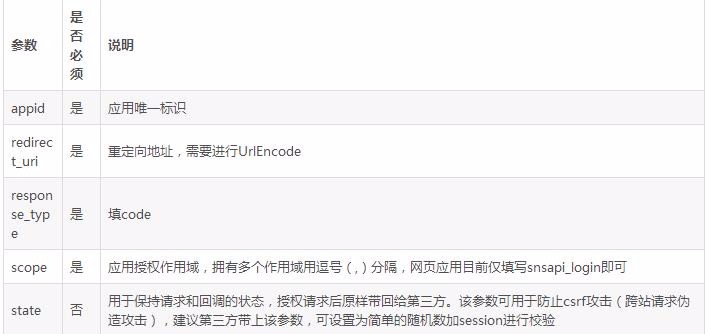 PHP Libraries
PHP Libraries
 WeChat interface library
WeChat interface library
 PHP implements WeChat web page authorization development class
PHP implements WeChat web page authorization development class
All resources on this site are contributed by netizens or reprinted by major download sites. Please check the integrity of the software yourself! All resources on this site are for learning reference only. Please do not use them for commercial purposes. Otherwise, you will be responsible for all consequences! If there is any infringement, please contact us to delete it. Contact information: admin@php.cn
Related Article
 PHP implements WeChat web page login authorization development
PHP implements WeChat web page login authorization development
19 Apr 2018
This article mainly introduces the implementation of WeChat web page login authorization development with PHP. It has certain reference value. Now I share it with you. Friends in need can refer to it.
 C# WeChat public account development--Web page authorization (oauth2.0) to obtain basic user information 1
C# WeChat public account development--Web page authorization (oauth2.0) to obtain basic user information 1
16 Jan 2017
WeChat web page authorization is divided into two methods: snsapi_base and snsapi_userinfo. snsapi_base needs to follow the public account, and the user authorization interface will not pop up when obtaining user information. snsapi_userinfo is used when the user browses the page without following the official account. A user authorization interface will pop up first, and the user information can only be obtained after the user authorizes it. In this article, we first look at the snsapi_base implementation.
 Detailed explanation of PHP WeChat web page authorization development
Detailed explanation of PHP WeChat web page authorization development
05 Jun 2018
This article mainly introduces the detailed explanation of PHP WeChat webpage authorization development. Interested friends can refer to it. I hope it will be helpful to everyone.
12 Jul 2016
PHP implementation of WeChat web page authorization development tutorial, PHP authorization tutorial. PHP implementation of WeChat web page authorization development tutorial, PHP authorization tutorial WeChat web page authorization is an advanced function only available for service accounts. Developers can obtain the user's basic information after authorization; before this
 Steps to implement WeChat web page authorization development with PHP
Steps to implement WeChat web page authorization development with PHP
12 Mar 2017
This article mainly shares with you the PHP implementation of WeChat web page authorization development tutorial. Developers can obtain the user's basic information after authorization. Interested friends can refer to it.
 WeChat mini program mall development uses WeChat authorization and implements the page code of the personal center
WeChat mini program mall development uses WeChat authorization and implements the page code of the personal center
16 Aug 2018
What this article brings to you is about the development of WeChat mini program mall using WeChat authorization and implementing the page code of the personal center. It has certain reference value. Friends in need can refer to it. I hope it will be helpful to you.


Hot Tools
PHP WeChat web page authorization login class
PHP WeChat web page authorization login class
PHP version of WeChat third party implements one-click login class
PHP version of WeChat third party implements one-click login class
PHP relatively complete WeChat development class
PHP relatively complete WeChat development class




